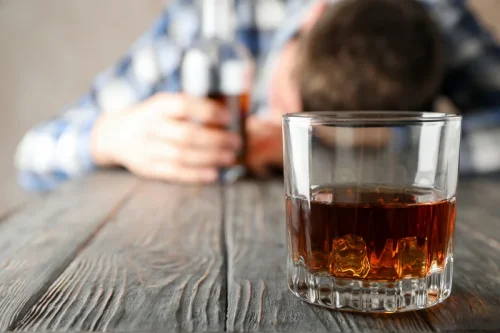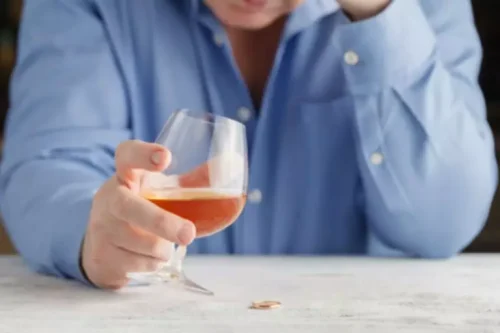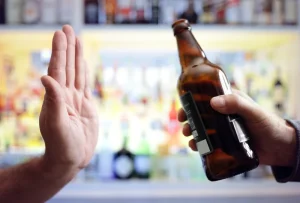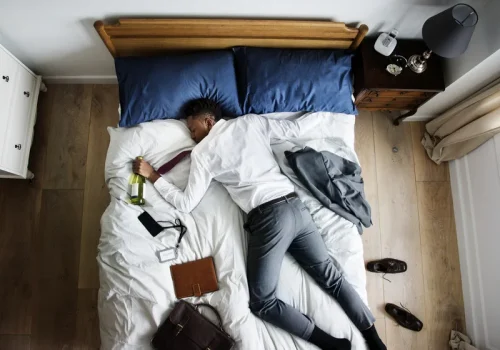
Readers interested in more detailed descriptions of the methods of particular studies, however, are referred to specific citations within those reviews. While the data presented here suggest that an integrated approach to the depressed alcoholic patient may be efficacious, the data are not prescriptive; there is not a clear treatment algorithm for this population. Individual differences in response to treatment based on demographic or diagnostic differences are not well-defined in these studies, for example. Although, clinicians have long recommended this integrated model of treatment for dually-diagnosed patients, the research base looking at defining specific optimal approaches and subsequent outcomes in this model remains relatively limited. During withdrawal from heavy drinking, people may develop delirium tremens, a complication of withdrawal marked by psychotic symptoms, such as hallucinations (see Core article on AUD). Alcohol use disorder (AUD) often co-occurs with other mental health disorders, either simultaneously or sequentially.1 The prevalence of anxiety, depression, and other psychiatric disorders is much higher among persons with AUD compared to the general population.

Drugs & Supplements

And drinking alcohol, which depresses the central nervous system, can lead to more depressed feelings in those already suffering from depressive and other mood disorders. Many studies have found that alcohol dependence is closely linked to depression. When it comes to diagnosing an alcohol use disorder and a major depressive disorder, it’s important to address them simultaneously, as they can significantly impact your recovery. If you’re battling depression, alcohol isn’t going to make you feel better.
- It is important to remember, however, that certain studies show some overlap among depressive, anxiety, and alcoholic disorders in the same family.
- It is also important to remember that some studies indicate a potential relationship between alcoholism and anxiety/ depressive disorders.
- 2019 research suggests that depressive disorders are more common in people with alcohol dependence than in those who engage in alcohol misuse, like binge drinking.
- When you drink too much, you’re more likely to make bad decisions or act on impulse.
Behavioral changes and consequences of binge drinking
On many college campuses, binge drinking-heavy episodic drinking– has become an acceptable social norm. Polysubstance use was noted, with 50% of the participants using tobacco while 21.3% of them were using cannabis. Out of the eight included studies [15-22], only one study had a retrospective design [16], whereas the remaining seven studies were prospective, where one study was a case-control study [15], five studies were randomized controlled studies [17,19-22], and one study was a prospective cohort study [18]. If you begin to notice any unwanted side effects — physical or emotional — while drinking, it may be best to call it a night.
- Drinking persistently and excessively can increase your risk of developing a major depressive disorder.
- The integrative approach to treatment of these co-occurring disorders that we will discuss in this paper is rooted in an appreciation of these complex relationships.
- But does regular drinking lead to depression, or are people with depression more likely to drink too much alcohol?
Persistent depressive disorder
However, the flip side is that people who frequently use alcohol are more likely to also be depressed. Drinking a lot may worsen these feelings, which may actually drive further drinking. Depression may even cause people to begin consuming large amounts of alcohol. A dual diagnosis can be complicated to treat, https://ecosoberhouse.com/ no matter the circumstances. The most common treatment options are included below, but know that recovery requires a personalized treatment plan that best suits your mental health needs. No matter your drink of choice, alcohol can easily be abused and often is, especially when it’s used to self-medicate.
Also, an 18-year followup of 80 children who had experienced severe depressive episodes earlier in life revealed no evidence of an increased risk for alcoholism during the followup period (Harrington et al. 1990). Finally, Schuckit’s research group followed 239 alcoholic men 1 year after they received alcoholism treatment, and the data revealed no significantly increased rates of major depressive or anxiety disorders (Schuckit and Hesselbrock 1994). It is possible, however, that some of these studies might have excluded subjects with more severe anxiety or depressive disorders from the original samples, and consequently more work in this area is required (Kushner 1996). As recently reviewed in the literature, some interesting data also support a possible relationship between longstanding anxiety or depressive disorders and alcoholism (Kushner et al. 1990; Kushner 1996). The most consistent results relate to manic episodes, wherein manic-depressive patients show a small but significant increased risk for alcoholism (Winokur et al. 1993). Other data also suggest a greater-than-chance association between panic disorder (and perhaps social phobia) and alcoholism (Cowley 1992; Cox et al. 1990; Kushner 1996).

Treatment for Co-Occurring Depression and Alcohol Use Disorder

The majority (53.3%) of the participants earned an income of less than 143 United States dollars per month. The participants were subjected to alcohol detoxification for 10 days using a pair of ampoules of Pabrinex 1 & 11 given by intravenous injection daily for 3 consecutive days, Diazepam 5 mg and Carbamazepine 200 mg for 5 and 10 consecutive nights, respectively, on outpatient basis at intake. Although the study participant had a general physical examination done (including blood pressure, temperature, and body weight check), no laboratory or radiological investigations were done in the current study. Low doses of benzodiazepine were given to all participants to avoid heavy sedation that would complicate existing medical conditions.
“Cells are living beings, and if you want to fix the issue of depression at the level of the cells, they cannot be inebriated,” says Taylor. “Alcohol makes us feel drunk and confused because alcohol makes the cells drunk and nonfunctional.” Because of this shared connection, treatment for both should include a diet to improve gut function and reduce endotoxin load that contributes to neuroinflammation. Following a Mediterranean diet rich in omega-3s, for example, might be one recommendation. 1For reviews of studies not cited in the reference list, see Schuckit and Hesselbrock 1994.
Drinking to cope with depression, no matter if you have an alcohol use disorder, is concerning. Individuals diagnosed with clinical depression should be extremely cautious when it comes to using substances such as alcohol. According to Kennedy, for those taking antidepressants, combining them with alcohol can reduce their efficacy. Alcohol can produce feelings of euphoria and excitement, making you feel instantly happier and more confident, but those feelings are fleeting. Much like barbiturates (sedatives), alcohol is a drug that affects the central nervous system (CNS) and the brain’s functionality. If you feel unable to keep yourself safe or think you might harm yourself it’s a mental health emergency.
Having an extra drink or two once in a while doesn’t automatically translate to heavy drinking. According to the National Institute on Alcohol Abuse and Alcoholism, moderate drinking means one drink per day for women and two drinks per day for men. Even if they don’t improve immediately, you’ll probably have an easier time doing something about them when you don’t alcohol and depression have to deal with physical symptoms, too. Then, try distracting yourself to help take your mind off how you feel. It often feels very tempting (and easy) to keep drinking until you feel better, especially when you have less access than usual to more helpful coping methods. If you wake up feeling miserable after a night of drinking, you don’t have to wait it out.
And if you’re worried about your drinking, there are alcohol support services that can help. Engaging a patient in a self-help program may create unexpected challenges for alcoholic patients with co-occurring psychiatric illness. For example, despite official AA literature speaking to the contrary, in some groups there may still be a bias against the use of medications.


Connect with us